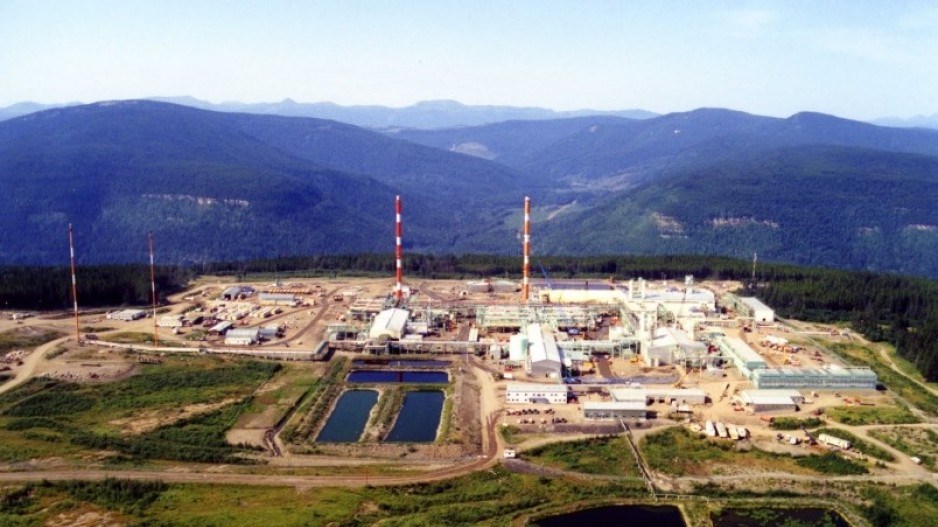A Chetwynd gas plant is being decommissioned as a labour dispute at Sukunka Natural Resources’ Pine River plant continues, Unifor Local 449 says.
Sukunka Natural Resources Inc., a subsidiary of Canadian Natural Resources (CNRL), operates the plant, which is behind a Unifor Local 449 picket line.
There had been rumours the decommissioning of the sour gas facility was a closure but Unifor B.C. and Alberta director Andrea McBride said that‘s not the case.
“It’s not a closure,” BC and Alberta director for Unifor Local 449 Andrea McBride said. “It’s about taking chemicals out of the plant.”
She said the company went to B.C.’s Labour Relations Board (LRB) to get the plant deemed an essential service.
CNRL did not respond to Glacier Media queries.
The board said the plant has three states: active, safe idle and decommissioned.
It said in a Jan. 25 decision that the plant did not have to move to a decommissioned state due to the need to keep the environment and people safe from the hazards of removing chemicals down risky roads in winter.
“To get to the decommissioned state, all 1.5 million litres of toxic chemicals will have to be moved off site,” LRB vice chair and registrar J. Najeeb Hassan said in the decision. “They will have to be trucked down a 20-kilometre, mountainous logging road in winter conditions. An accident would almost certainly result in a spill of those chemicals into the environment, causing serious harm and risking the drinking water of Chetwynd being contaminated. That is not an acceptable risk to impose on British Columbians, including to the drivers of the trucks. It is my view that appropriate measures must be taken to prevent that from occurring.”
The board said the plant could move to safe idle before moving to decommissioned June 1 if the strike continues.
It said that when the plant is operating normally, it has a variety of technical systems that allow it to safely operate but a labour dispute brings the continued operation of those into question, which is the reason the company approached the LRB.
In safe idle, the plant can safely sit indefinitely with maintenance and monitoring.
The company said moving to safe idle would cost about $5 million with a return to active about $8-10 million.
“The employer estimates that to put the plant in the decommissioned state will take an additional 5-10 days over and above the time required to put the plant into the safe idle state, at an additional cost of $4.1 million dollars,” the LRB said.
The company wanted to put the plant into safe idle, said the board, which called the situation unique with an essential service decision being sought due to public risk from the plant. Such services are usually those in the public domain such as health care.
While the consequences for the employer may be significant if the essential service order requires the plant to be put in the decommissioned state in the event of a strike, the consequences could be just as grave for the employees if the employer decides not to restart the plant after that occurs,” the LRB decision said. “This is particularly so in a rural community, where good-paying jobs may be more difficult to find than in more urban centres.”
The company suggested putting the plant into a decommissioned state would give the union “exceptional bargaining power” in the context of a strike, which the company said should replicate a temporary shutdown, not a permanent shutdown.
The union said the plant would be safer in a decommissioned state than an idle one, that no bargaining unit employees would be required.
McBride said the company had been talking about bringing in replacement workers until the union said this was not allowed in B.C.
“In this province, there are no scabs,” she said. “We explained that to them and they were a little speechless.”
She said there are three union members in the plant each shift to ensure safety.
She said the plant had millions of litres of gas in its lines and had to flare it off, causing an unpleasant smell for local residents.
Flaring is generally part of routine gas production and processing operations with fuel or waste gas ignited at the top of a stack. It is known to produce odours.
“We understand it was quite strong,” McBride said.
The BC Oil and Gas Commission said CNRL initiated a planned shut down of the Pine River operations.
“During a shutdown, operations of this type will typically depressurize their systems via flaring,” a commission statement said. “Air emissions from flaring at the plant are authorized under the Environmental Management Act permit for the facility.”
The commission said there are two air quality-monitoring stations in the plant vicinity and data showed SO2 levels had been briefly elevated on March 6.
Canada’s National Energy Board (now the Canadian Energy Regulator) approved a Westcoast Energy application to sell natural gas facilities in northeastern British Columbia to Sukunka Natural Resources Inc. in May 2019.
The facilities included in the sale include the Pine River and Kwoen processing plants and gathering pipelines in the Grizzly Valley resource area.
With the transfer, they no longer fall under federal jurisdiction.



